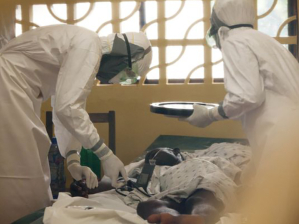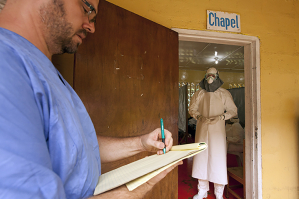
An US Christian doctor has contracted Ebola from treating the victims of the Ebola Hemorrhage Fever caused by the deadly virus in Liberia, according to a statement from Samaritan's Purse.
Samaritan's Purse, a Christian aid charity headed by Billy Graham's son Franklin Graham, said Saturday that Dr. Kent Brantly had been isolated at the group's Ebola treatment center at the ELWA hospital in Liberia's capital Monrovia.
"Dr. Brantly is married with two children," the group said, in a statement posted on its website. "Samaritan's Purse is committed to doing everything possible to help Dr. Brantly during this time of crisis. We ask everyone to play pray for him and his family."
The 33-year-old doctor recognized his own symptoms and confined himself to an isolation ward. He was working as the medical director at one of Liberia's two treatment centers run by the aid group.

It was not immediately clear how he caught Ebola. The disaster relief group's Melissa Strickland told Reuters that he had followed strict safety protocols when treating patients.
As of July 20, at least 660 people have died from the months-long epidemic from among the 1,093 cases recorded across Guinea, Liberia and Sierra Leone, the World Health Organization reported.
While Ebola kills 90 up to 90 percent of its victims, the fatality rate of the current outbreak stands at around 60 percent.
Ebola is highly contagious and can kill a victim within days. Patients suffer symptoms of severe fever and muscle pain, vomiting and diarrhea and, in some cases, organ failure and unstoppable internal and external bleeding.
It spreads among humans by direct contact of bodily fluids including sweat and blood, and tissues of infected person. The disease can spread even after the victim has died during the handling of the deceased's body.






